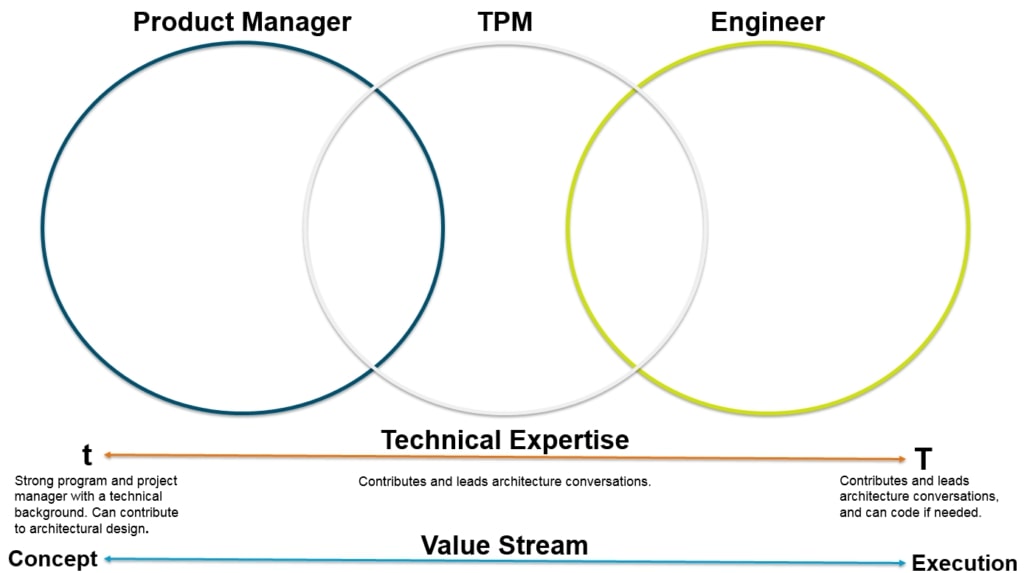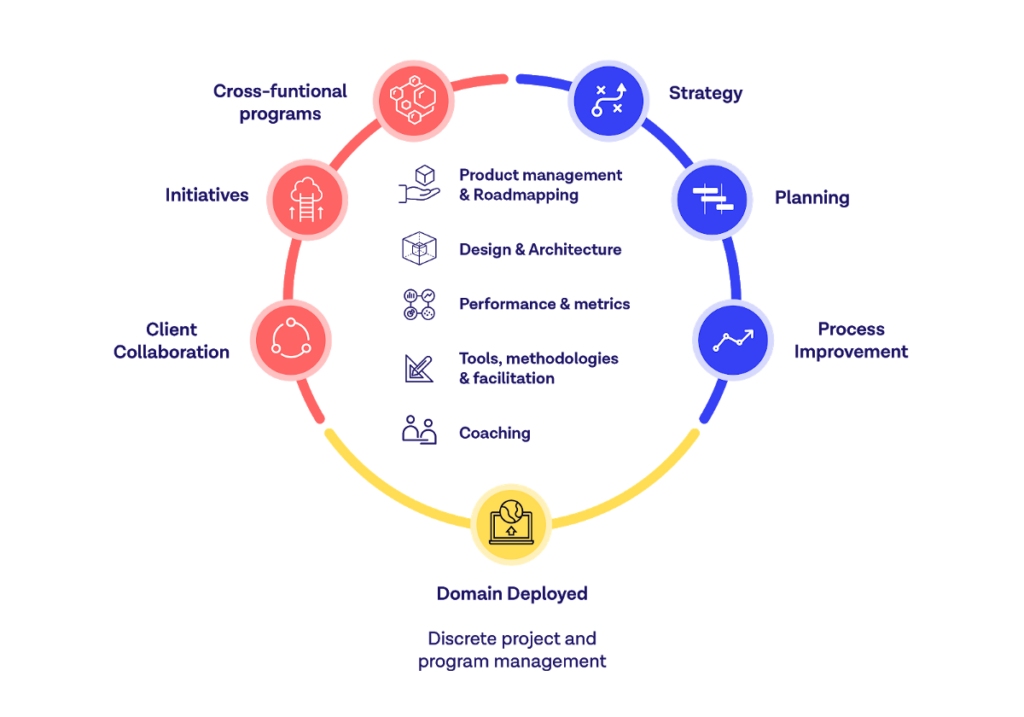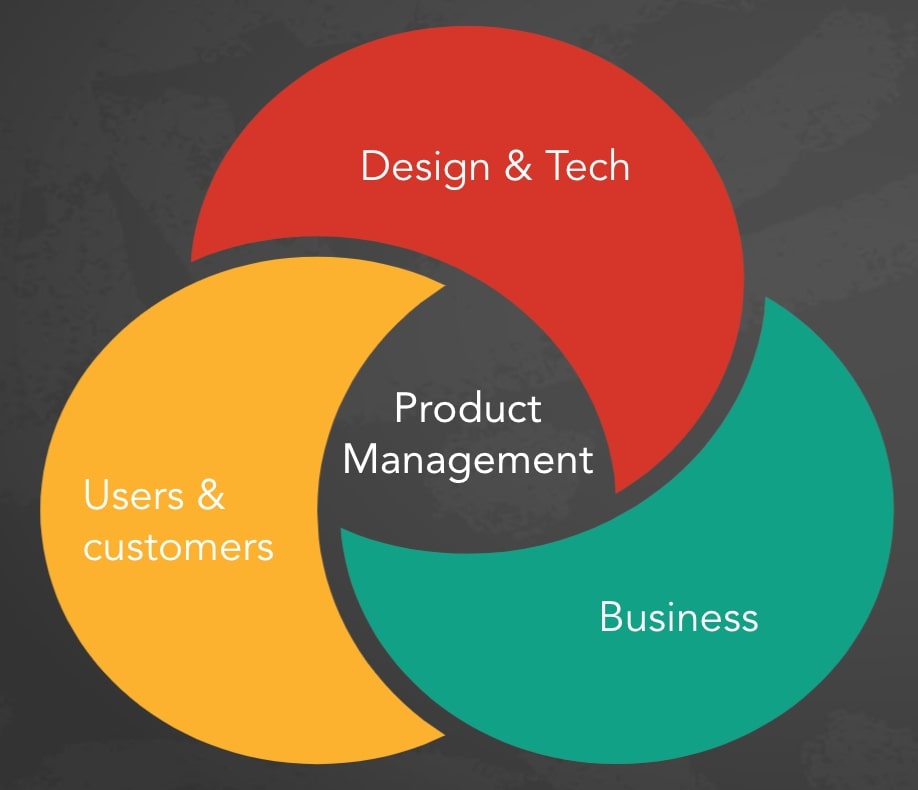Curious to learn more about the technical program manager vs product manager debate?
Technical program managers and product managers are similar roles. That said, it is challenging for aspiring product professionals to understand the differences between the two roles.
In today’s post, we break down the roles, responsibilities, skills, and career expectations of both technical program manager and product managers.
Let’s get right into the discussion.
Technical Program Manager Role
Technical program managers lead teams within organizations. They do not focus on the day-to-day development challenges of individual products or projects. Instead, technical program managers focus on:
- How all the projects or products within a single program integrate with one another
- Whether new products align with company directives or strategic visions
- Assigning resource and budget constraints on specific products or projects

Credits: Medium
Technical program managers oversee entire projects and monitor how they affect a company. Those projects are not specific products but encompass several products or projects that teams build around the same timeframe.
Technical Program Manager Responsibilities
Technical program managers have many different responsibilities.

Credits: Medium
These include:
- Planning for product creation deadlines and resource constraints including those for individual organization members
- Determining whether a new product aligns with company goals
- Assigning projects to different product managers
- Deciding whether the design principles and solutions of products are ideal for consumer needs/wants
- Following program progress and communicating progress reports
- Communicating with different department heads and members
- Facilitating collaboration between units such as HR departments and product design teams
- Ensuring that the team carries out product executions and launches
Product Manager Role
Unlike technical program managers, product managers oversee the design, development, and eventual launch of specific products. They are experts in the products they create and lead teams over hurdles, roadblocks, and other challenges the team encounters on the way to launch day.

These product management professionals focus on one project at a time. They execute specific objectives and support agile development processes. In doing so, in larger organizations, it is common for product managers to work alongside Scrum masters in an effort to promote agile practices.
Product Manager Responsibilities
The specific responsibilities of product managers include:
- Managing team members, as well as development and marketing team members
- Ensuring collaboration between departments when needed
- Reviewing product ideas and product features to make sure they fit customer needs
- Developing a program execution strategy for all products with marketing managers, product owners, and project teams
- Working with the technical program manager to allocate resources, deadlines, and more for their development team
- Overseeing the product development process to make sure it follows design and vision principles
- Assisting senior management with business goals, product pricing, and more
- Reducing or eliminating product backlog issues
- Determining the product lifecycle for company products and developing new product lines when needed
- Using management tools to track product performance, come up with business strategies, and compose reports
- Recruiting and training new product employees as needed

These responsibilities focus on individual product creation and success. Thus, some product managers have short-term jobs before moving on to new projects.
Important Technical Program Manager Skills
Technical program managers leverage important skills to succeed in their everyday duties. Compared to standard program managers, technical program managers have tech-based backgrounds.
They understand important elements of tech development, design, programming, and more. Tech program managers sharpen these skills to help them understand the limitations or resource requirements of new products that are under their supervision.
However, technical program managers also have strong business-focused skills. These include:
- Organizational and time management skills. These skills allow technical program managers to organize teams, allocate resources, and assign deadlines that enable product managers to complete tasks on time.
- Leadership skills. Most technical program managers oversee product managers or project managers as their assigned programs progress. They need strong leadership skills to ensure collaboration between departments, as well. For example, some technical program managers communicate with HR department heads to ensure that project or product managers have the personnel they need to complete new products
- Communication skills. As noted above, technical program managers have to facilitate interpersonal cooperation between apartments all the time. Communication skills allow tech program managers to do this better as well as report on progress and potential roadblocks to external stakeholders or executives.
Important Product Manager Skills
Product managers have several important skills that enable them to complete their duties. These skills include:
- Time management and prioritization skills
- Budgeting skills to manage available resources
- Product development skill
- Communication skills to report to team members, stakeholders, consumers, and upper management
- Problem-solving skills to handle hurdles encountered during the product design and development process
- Technical skills needed to understand and master the given product at hand
Because product managers focus on completing and shipping one product at a time, they always know the ins and outs of that product. They participate in the initial design and conception of the product and see it from creation to completion.
Technical Program Manager Salary
Technical program managers earn $126,000 per year on average. Higher-paid technical program managers earn over $466,000 a year, while lower-paid technical program managers earn $40,000 per year. Tech program managers earn more as they gain seniority and experience.
Product Manager Salary
Product managers earn $119,000 each year on average. The highest-paid product managers earn over $278,000 per year while the lowest-paid earn $53,000 per year.
Technical Program Manager Career Path
Technical program managers have many career advancement opportunities. These potential career advancements include:
- Staff technical program managers: These professionals focus on staffing and personnel requirements.
- Senior or principal technical program managers: These refer to technical program managers who have other tech program managers working beneath them. A principal technical program manager oversees the creation and completion of larger programs with more projects or products contained within them.
- Directors of technical program management: A director of technical program management leads entire program management departments. They report to executives or stakeholders more than other tech program managers. They oversee the large-scale programs such as company initiatives or new product campaigns
- Chief information officer or CIO. Chief information officers create new objectives and company strategic directives. They use their tech backgrounds and information understanding to determine what moves are best for their companies in terms of new programs and product launches
Product Manager Career Path
Product managers pursue many different promotions or career paths.
Most product managers continue their careers by taking on a more senior role within product management. In said capacity, these professionals oversee more people and larger teams. They are also responsible for more important products and development lifecycles.
Next, product managers sometimes become directors of products or product development. These department heads lead all other product managers and work with technical program managers or other leaders as needed. Directors of products are responsible for setting broad goals in relation to product creation, such as deciding what kinds of products a company makes over the next year or quarter.
Some product managers become VPs of Product or similar executives. As with other promotions, these professionals take on even more responsibility and work with other executives, such as chief information officers, and directors of technical program management, to name a few.
As product managers gain increased responsibility and oversee broader projects, they also gain increased career stability. As they climb their career ladders, they become permanent fixtures of companies and direct product creation goals when organizations decide upon new products.
Technical Program Manager vs Product Manager: Key Takeaways
Technical program managers oversee the design, development, and launch of multiple products within broad programs. They ensure collaboration between departments, communicate with stakeholders and executives, and ensure that new products are both designed according to company principles and help meet strategic objectives.
Product managers oversee the design, development, and launch of specific products. They are product experts for their assigned projects and handle all hurdles encountered during the building phase. Product managers report to technical program managers in many cases. Both of these professions play important roles within modern IT organizations.